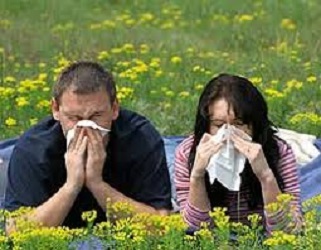
Spring is here and this can mean a problem for the more than 50 million Americans with spring allergies. According to the Centers for Disease Control and Prevention, allergies are the sixth leading cause of chronic illness.
Allergies have been found to be a leading cause of chronic sinusitis, a chronic condition that may result in multiple sick days and lost productivity. Spring and fall are the worst time for allergies and sinusitis.
There are differences between a cold and spring allergies in the Springtime. Here is how you tell the difference.
- Allergy attacks never include fever as part of their presentation. Colds often involve low-grade fevers, below 101 degrees, and can run higher if the virus is aggressive.
- Common colds often involve some form of cough while patients may never cough during an allergy attack. Some allergy patients, however, especially asthmatics, can experience wheezing or cough as part of their presentation.
- Frequent and multiple sneezes are a hallmark of the allergy attack, especially in a patient who doesn’t feel “sick.”
- Runny, stuffy nose. Nasal congestion is a common symptom for both allergy and cold sufferers. It results from increased blood flow to the internal mucous membranes of the nose and sinus cavity as the immune system responds to the condition at hand. Generally, allergic mucous is clear and watery, while an infection causes thick, colored mucous. Contrary to popular belief, the color of nasal mucous does not distinguish whether the infection is viral or bacterial.
- Often congestion can cause a feeling of pain or pressure within the sinuses, sometimes called “sinus headaches.” This can occur in both allergies and colds. But if the headache is one-sided, that could indicate a more serious bacterial infection.
- Itchy eyes, ears and throat. Itching in these areas almost always suggests an allergic cause of the symptoms.
- Sore throat. Both colds and allergies can result in sore throats. But allergy patients often describe the pain as more “scratchy” while colds produce a more severe, “sharp” sore throat.
- Swollen glands. Swelling of the lymph nodes in the neck and under the chin frequently accompanies the common cold and resolves on its own. Allergies seldom produce swollen glands.
We at On Call Medical Clinic hope that this information was helpful. We are here 7 days a week if you are suffering from a Spring cold or allergies. Please visit our website at www.oncallclinic.com to review all the medical services we offer. Our friendly and courteous staff is ready to help you get back out and enjoy the Spring.


